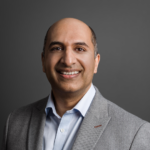In striving for harmony – or balance – of that whole, we must consider all the factors affecting African private clients. Identifying them enables us to consider what impact those factors are or should be having on the rest.
At the outset, it is important to keep in mind that African families face all the usual challenges that their counterparts do in any corner of the world. These range from the fundamental concern of wealth preservation, through to planning income requirements, and considering succession.
However, apart from the usual issues, there are further pressures or regional factors affecting African families in particular. Let us go over each of these factors one by one.
Governance: Making place for the old and the new
The strength and success of an African family business is often tied to the entrepreneurialism and endeavour of a patriarchal founder. More often than not, his tireless pursuit of his mission has resulted in success, with established social and business status, and the ensuing wealth.
This means that the business structure is inherently hierarchical. Cultural norms of respect for elders and tradition favouring certain categories of family members, such as first-born children, compound this issue. Societal norms arising from multiple marriages or complex customary relationships also need to be accounted for.
Finally, patriarchs send their children to the UK, USA and Australia for education and career development. Upon returning home, the youth bring fresh ideas, an innovative spirit and a loyalty to family that is also characterised by the pressure of “large shoes to fill” or a family name to “live up to”.
Engaging with the second and third generation is key. Planning for their ideas to be considered and integrated into the business will motivate them. Harnessing the passion of their ideas and fusing those with the family business can also achieve diversification. Good governance uses loyalty and ideas to generate value. Suppressing or ignoring such energy brings the risk of conflict (personal and professional). Such conflict can become entrenched – making succession planning more difficult than it needs to be.
Organisation: Making sense of diversified structures
The opportunistic character of investments built up by African clients over a long period of time means they have very varied business interests and assets which do not necessarily focus on one sector. Rather, they reflect the opportunity presented to the patriarch to invest. Such opportunities may have ranged across industries, decades and jurisdictions. A typical family conglomerate might include construction, retail, industrial and real estate investments – instead of being entirely focussed on one sector, such as energy.
A good first step is to reorganise shareholdings and implement an ultimate holding structure, with reporting lines, responsibilities and segregation of joint ventures away from the core business and private family assets. In Africa that often entails identifying what belongs to whom in the family (and which are business assets) since those lines blur in practice.
The advantages of completing this exercise include streamlining compliance, organising ownership records and empowering executives in the group to focus on priorities. This generates value across the group and opens the door to sustainability and innovation.
Risk management: Mitigating geopolitical risks
The geopolitical countenances of the continent prompt the need to mitigate currency fluctuation, local inflation, the risk of asset sequestration and the ability to move investment monies across borders.
Settling wealth and asset planning arrangements such as trusts or incorporating investment vehicles can help. Efficiency lies in taking advantage of double tax treaties, such as those between Mauritius and African countries. Mauritius supplements that fiscal advantage for African clients with accessibility to qualified, friendly and multi-lingual fiduciaries and administrators whose skilled labour is accompanied by insight and expertise.
It is a false economy to cut corners when retaining such services. Some African clients have discovered that the hard way, after being side-lined as high risk by their service providers or even, in the worst-case scenario, defrauded by them. The sophistication of the Mauritian market means that it now offers expert insights from professionals who not only understand the cultural norms and dynamics of African families but who actually have a passion for working with African clients and supporting them in fulfilling their aspirations.
Balancing the wheel of life
In the ultimate analysis, the key to keeping a wheel spinning is as simple as ensuring its balance and infusing proactive effort into the exercise.
By starting with an understanding of the family and its mission and harnessing the power of good governance and working with best-in-class professionals, a sustainable approach to wealth and business succession planning is one that is well within reach for clients from Africa.
Published on May 2021 in Issue 1 of Mauritius Finance – Page 40


